India is building its oil reserves in underground rock caverns and tanks, finds out Abheet Singh Sethi/IndiaSpend.com.
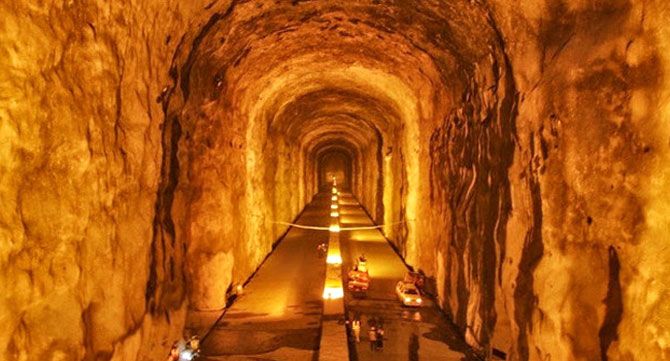
Two giant, rock-cut caverns will soon be pumped full of crude oil in the eastern port of Vishakhapatnam, part of a set of new underground facilities that will hold India’s emergency oil reserves.
Taking advantage of weak global crude prices, down about 42.5 per cent since July 2014, the government is spending about Rs 4,948 crore ($800 million) to shore up what are called strategic oil reserves, which can be used in emergencies, if crude imports are disrupted.
The new storage facilities, approved on January 2006, include:
Apart from the natural caverns, concrete tanks are being built at Vishakhapatnam port. Both underground facilities can together hold 1.33 metric tonnes (MMT) of crude—the equivalent of 1,29,221 truck-tanker loads.
Money left over after filling the Vishakhapatnam storage will be used to buy more crude to fill two more facilities at Mangalore and Padur, both in Karnataka on India’s western coast.
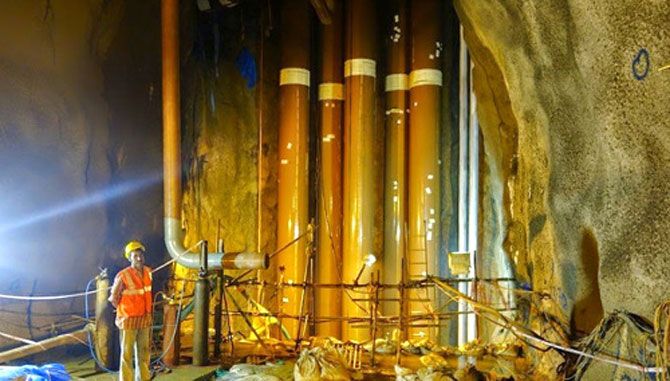
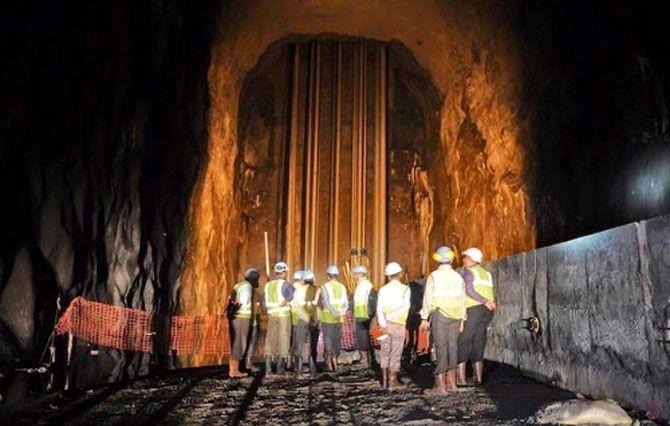
Put together, the three facilities - managed by the Indian Strategic Petroleum Reserves Ltd - can hold 5.33 MMT of crude oil, the equivalent of 5,17,857 truck-tanker loads (of 12 kilolitre capacity each).
The strategic reserves would hold enough crude oil to power India for about 13 days, based on current net oil imports, according to data tabled in Rajya Sabha.
| Location | Approved Cost of Construction (in Rs crore) | Capacity (MMT) | Anticipated Completion Date |
|---|---|---|---|
| Vishakapatnam | 1038 | 1.33 | Completed |
| Mangalore | 1227 | 1.5 | Oct-2015 |
| Padur | 1693 | 2.5 | Oct-2015 |
Source: Indian Strategic Petroleum Reserves Limited
Why India needs emergency oil reserves
In 2014-2015, India will import 83 per cent of its total (228.41 MMT) oil requirement, according to data released by the ministry of petroleum and natural gas.
Over five years, India has imported more than 80 per cent of its crude-oil requirement.
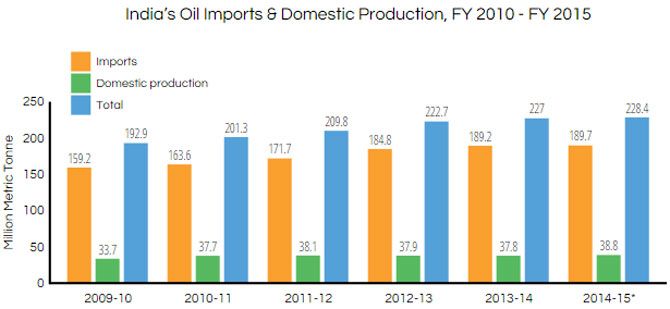
Source: Ministry of Petroleum and Natural Gas; Figures in Million Metric Tonne; Note: *Estimated
The erstwhile Planning Commission (now NITI Aayog), in its Integrated Energy Policy, 2006, announced, supply, market and technical risks as major threats to India’s energy security. It recommended that India “maintain a reserve equivalent to 90 days of oil imports for strategic-cum-buffer stock purposes”.
India will require additional crude-oil storage of approximately 13.32 MMT by 2019-20, according to rough estimates, based on existing storage with oil companies and the new facilities being built by ISPRL.
Therefore, the Indian government is planning to build four more facilities for strategic crude reserves at Chandikhol (Orissa), Bikaner, Rajkot and Padur, with a combined storage capacity of 12.5 MMT of crude oil, according to ISPRL data.
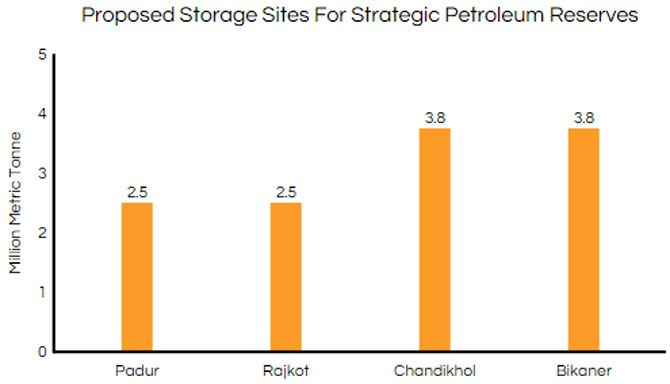
Source: Indian Strategic Petroleum Reserves Limited; Figures in Million Metric Tonnes
India makes a start, others ahead
The global standard for strategic oil reserves, as set by International Energy Association (IEA) for member-countries, is 90 days of net oil imports.
USA holds 95 MMT of strategic reserves, the highest by any country in the world.
Japan, which like India is dependent on imported oil, has the second highest reserves with 44 MMT (These reserves exclude commercial storage of crude oil).
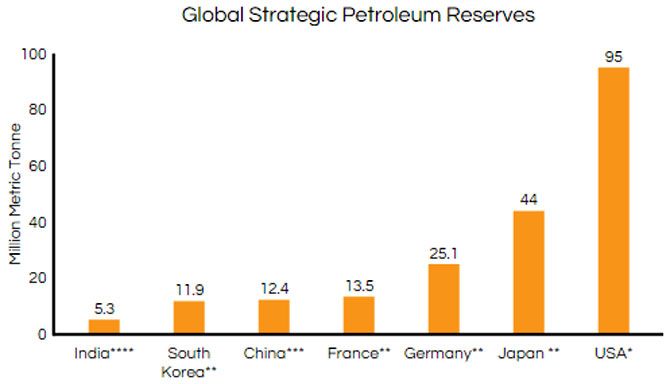
Sources: 1*(as on 2014); 2**(as on 2011); 3*** (as on November 2011); 4****(Currently in various stages of construction)
China, like India, is in the process of shoring up its strategic oil reserves. As of November 2014, it had acquired 12.4 MMT.
Indiaspend.org is a data-driven, public-interest journalism non-profit







 © 2025
© 2025